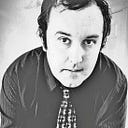Member-only story
In Defense of truly free speech: South Park at 21

Satire is one of the most powerful weapons of speech in a free society. It stirs the collective consciousness against oppressive governments and laws, rulers, the rich and powerful (look at Voltaire and the rich tradition of political cartoons in the modern world, all the way to the biting social commentary of freedom of speech warriors like Lenny Bruce and George Carlin), and moreover points a mirror at we ourselves as individuals: exposing the hypocrisies and frailties of our individual positions on issues — hopefully getting us to see where others are coming from in how they view the world. Thus, satire also takes tremendous steps to opening up dialogue on the issues where it had otherwise been stifled — penetrating that wall through a universal language of humor: if we are only willing to give a little introspection and laugh at ourselves.
Indeed, this stifling of well-meaning dialogue seems to be all too prevalent in the modern world, especially in the United States in the age of Trump, with people on the right (whether consciously or not) complaining about “political correctness” on the left, and people on the left (whether consciously or not) often complaining about what has been called “patriotic correctness” on the right. Most people, I firmly believe, tend to sit somewhere in the middle of these two positions.
I do not particularly like talking about my politics, especially in my capacity as a writer — it is not my responsibility nor prerogative to give you my opinions there when I am reviewing the merits of a film. That said, I do not hold it against people who do, or people who think differently from me. I am with these people in the middle, yet it is only fair I divulge my views here because of the nature of this editorial. I consider myself a small “l” libertarian (meaning I subscribe to the philosophy of “libertarianism” but not the national party). This means that I believe in maximum freedom for the individual (provided he does not directly hurt another person), and further that I agree with positions both on the left (gay and transgender rights, immigrant rights, civil rights principally) and on the right (some economics principally).
This further means that I see craziness on both sides, and also pay very little attention to party affiliation believing it to be more…
